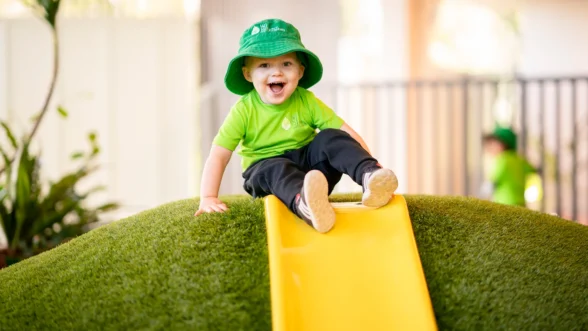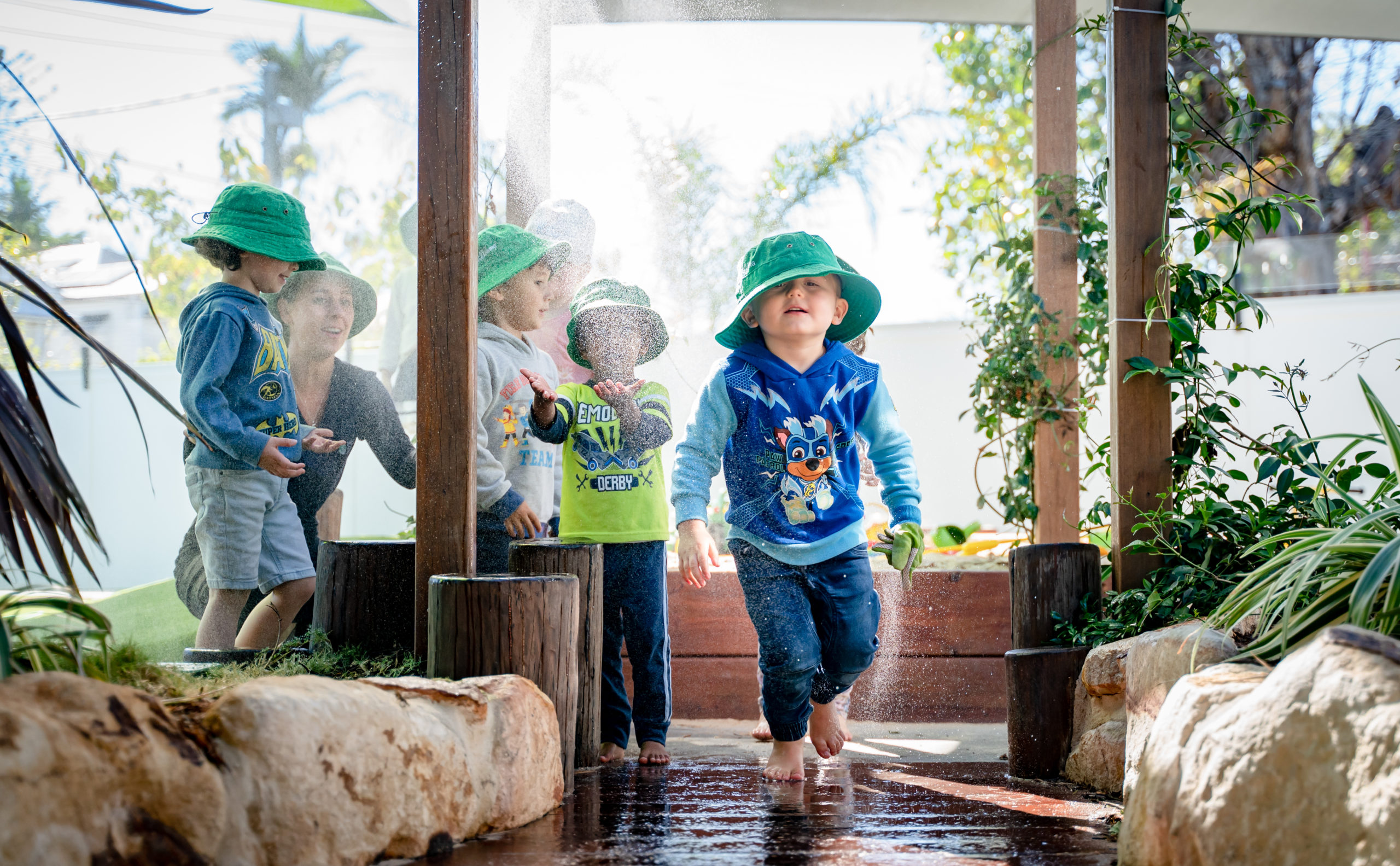Did you know that one of the most valuable learning tools for your children can be found in your home? Water presents countless learning opportunities for children in their early childhood – you just need to know how best to use it.
Whether your child is in the bath, splashing around in a pool or even drinking a cup of water, did you know that they are having an invaluable learning experience? There are few better (or more easily accessible) tools than water play for children’s learning. Here’s why…
Physical benefits of water play
Whether they’re pouring, scooping or squirting water, your child will improve on a number of physical skills including:
- Fine motor skills
- Development of hand-eye coordination and dexterity
- Increased physical activity and exercise
Cognitive development benefits
Beyond physical water play learning outcomes, your child will also develop cognitively, too. Some cognitive benefits include:
- Improved problem-solving skills through experimenting and exploring
- Enhancement of mathematical concepts such as measurement and volume
- Fostering creativity and imagination through open-ended play
- Improved problem-solving abilities through cause-and-effect exploration
- Enhanced fine and gross motor skills through pouring, scooping, and splashing
- Increased understanding of scientific concepts such as volume, weight, and buoyancy
Social and emotional benefits
Did you know that water play for children can also bring about social and emotional benefits? Water play can bring about opportunities for cooperative and interactive play with your child’s peers, helping them build teamwork and collaboration whether it’s with one friend or with a group. It can encourage your child to develop social skills like sharing and taking turns, and even help them develop self-regulation and independence. The benefits of water play are truly endless.
Water play activities
Now that you know why water play is so beneficial, you’re probably wondering how you can do it with your children. Here are some of our favourite simple water play activities that your child will undertake at Edge Early Learning, or that you can try straight away:
- Indoor activities: Playing with ice cubes; blowing bubbles in the bath, both with their mouth or with a straw; submerging toys in the bathtub or sink to watch how they bubble or take on water.
- Creative water activities: Painting with watercolour paints or using food dye and water, diluted depending on your strength; making interesting ice cubes by filling unusual containers; drawing on pavement using water.
- Outdoor water activities: Filling up and throwing water balloons; making sailboats and then racing them in gutters; making waves by swimming or splashing around in a paddling pool.
- Sensory bin and water table activities: Matching coloured ice cubes with coloured containers; fishing objects out of water bowls with their hands or other instruments; tipping cups of water into larger containers.
- Water play with toys: Making your own water wheels using LEGO parts and cups or spoons (try Google for specific instructions); tipping toys into buckets to see which ones float or sink; squeezing water out of sponges.
There are so many benefits to water play for children – physical benefits like improving fine motor skills, cognitive benefits like better creativity and scientific understanding, and even social and emotional benefits like teamwork and collaboration.
What’s even better is that you don’t need any fancy equipment or a lot of time for your child to enjoy them. Water play can be done easily and often in your very own home, or in your child’s Edge Early Learning classroom.

